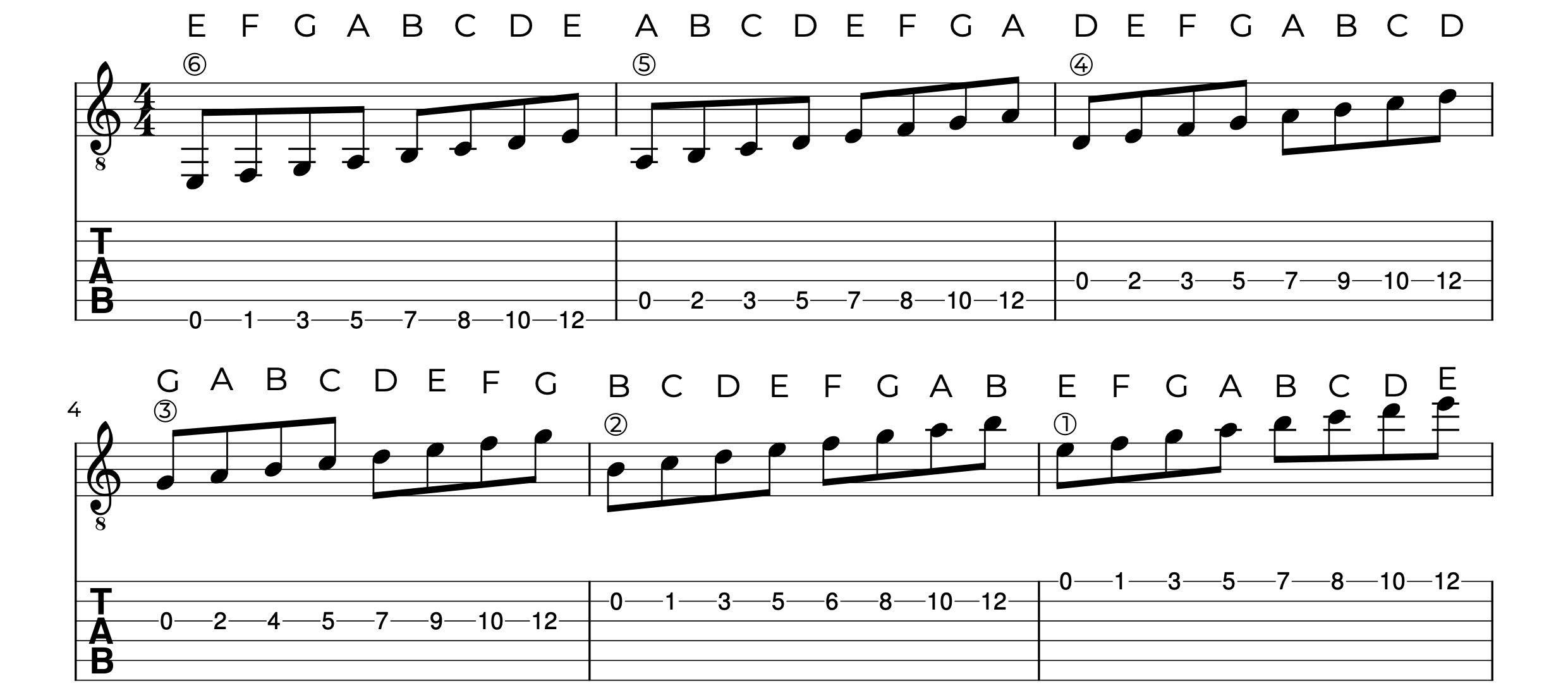*
Pitch Notation
A Crash Course in Musical Notation
Reading Tab Notation
Below the treble clef we'll often see a staff for tab notation. Tab notation is the easiest way to start reading music on the guitar. Each of six lines corresponds to a string on the guitar. The bottom line is the lowest string in pitch (or physically highest) on the guitar, and the top is the highest string in pitch (or physically lowest) on the guitar. The strings from lowest to highest in pitch are Low E, A, D, G, B, High E. The number shown on each line indicates the fret that you will play on that string. 0 means to just play the open string by itself.
Open Strings
Now we're going to take a look at how the open strings of the guitar line up over the treble clef. The strings of the guitar from lowest to highest in pitch are named and notated below.
- 6th String / Low E String
- 5th String / A String
- 4th String / D String
- 3rd String / G String
- 2nd String / B String
- 1st String / High E String

Filling In the Natural Notes
Now we're going to fill in the natural notes between each of these open strings on the guitar. All natural notes in the musical alphabet are seperated by a whole step (2 frets), except for B-C and E-F which are seperated by a half step (1 fret). Using this pattern we're going to fill in the missing letters of the musical alphabet between the open strings (E, A, D, G, B, & E).

Natural Notes Up Each String
We can also take this pattern and apply it vertically up the entirety of each string. This is a great way to become more familiar with the note names moving up the guitar neck.
